by Venchito Tampon Jr | Last Updated on December 22, 2022
What is a link exchange?
Link exchange is a process where two websites agree to place each other’s links on their respective websites in order to improve their search engine rankings and drive more traffic to their sites.
Though this practice has been abused for many years, e.g. a webmaster tries to rank for terms like “car insurance Australia” will find other webmasters in the same/different industry who would be interested in doing link exchanges.
The approach is to link to another website with exact match anchor text (another webmaster is trying to rank for) and get a link from that other website (for a target keyword he is trying to rank for as well).
Google itself instructed SEOs and webmasters about this approach of trying to manipulate Google search rankings.
“ Excessive link exchanges (“Link to me and I’ll link to you”) or partner pages exclusively for the sake of cross-linking. “
Does that mean, link exchange isn’t effective anymore these days?
The Rise Of Thematic Link Exchange
I’m sure many SEOs and bloggers will disagree with me that thematic link exchange still works up to this date.
Thematic link exchange is a relationship-based link building strategy that involves intentional or unintentional linking and getting a link to and from another webmaster in the same industry who isn’t a direct competitor of the business.
Here are four thematic link exchange methods that work pretty well in most industries, especially those that are sitting in very competitive ones.
1. Relationship-based Link Acquisition
Link exchange often occurs in an unintentional way. For example, I’ve been blogging for many years now with my first blog and here at SharpRocket.
I’ve built relationships with industry friends who also blog about SEO and link building.
By acknowledging their work through linking to their content assets that serve as additional references or resources in my existing posts, it’s an added value initiated to build trust which strengthens the open relationship with them.
For instance, I linked to Rohit Palit’s post on tiered link building. After a few months, he gave me a backlink pointing to my content creation and promotion guide in his article about increasing the domain authority of a website.
We’re not direct competitors, as he is not accepting sole link building services as his website client offering.
But here’s another case where one of my direct competitors linked to me.
PageOnePower is a link building company that has been in the industry since 2010, they blog about the same topic I’m passionate about.
Here are a few backlinks I gave to PageOnePower.

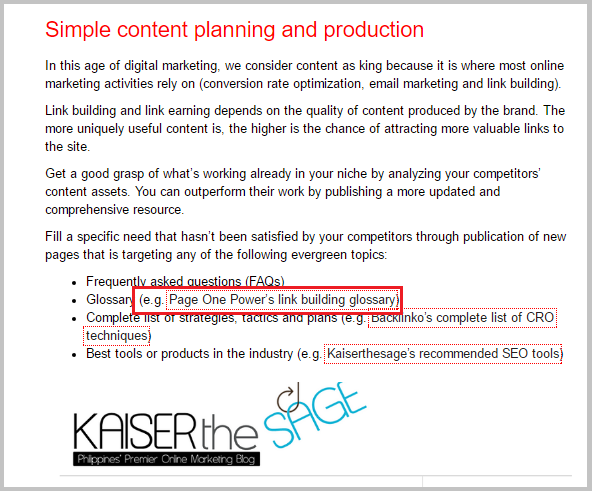
Relationships take time to get some returns. Guys from PageOnePower have give contextual backlinks to DigitalPhilippines many times.
These are backlinks not built through manual outreach, but simply because they’ve known our brand, we have already given them and have established an authority in the link building scene. These backlinks are naturally earned.
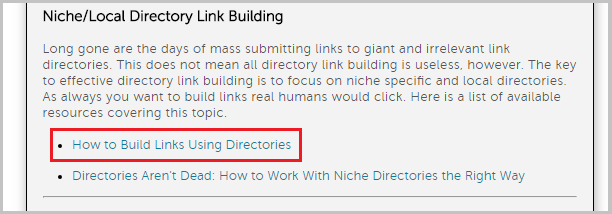
Here is another example of how relationships can be effective for link exchanges. It is a conversation between Rohit Palit and Patrick Coombe.
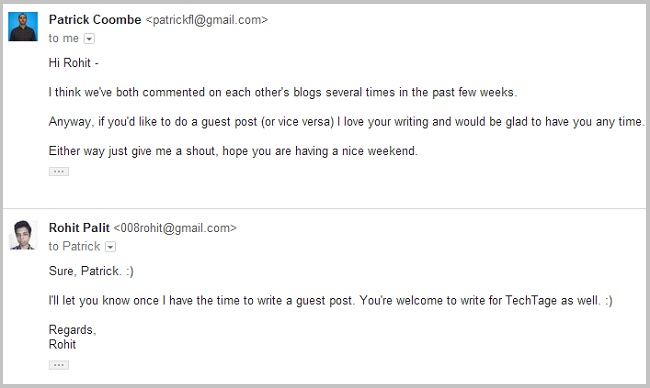
Both have provided value to each other, as they’ve been commenting on each other’s blogs many times (see image above).
If you’re wondering how you can start building relationships with other industry bloggers, here are a few tips you can apply:
- Start showing yourself in the blogosphere. Comment on other people’s blogs. It’d only take you 3 to 5 minutes for each comment per post (only look for relevant content you can give valuable insights to). If each blogger posts once every week, it won’t consume much of your time.
- Send a “thank you” email for sharing his actionable tips on his blog or find a similar interest both of you can relate with. For example, I often receive responses that they’ve visited Manila or some other parts of the country, so I asked them how’s their vacation experience here. It starts a smooth flow of conversation.
- Share other bloggers’ content on other blogs. Don’t use the default Twitter share: TITLE OF POST by TWITTER HANDLE. Add descriptive call-to-actions to let your followers click on the page and start reading it – it’s way to add more value than the simply doing a default Twitter share.
2. Content Swap
Guest posting is still one of the mainstream link building method these days because it’s pretty scalable and can really help skyrocket one website’s traffic even in just a short period. Combined with other link building tactics, it is a robust link building strategy one can ever wish to implement and see results for themselves.
However, there’s one problem I’ve seen with many guest posting inquiries these days — they aren’t giving any value. Even if the content they intend to provide is relevant to my blog, I won’t see that as high value.
Content swap is the solution. It is a link acquisition process where both bloggers will provide high-value content to each other, with the goal of bringing exposure to a new reading audience for both sides.
This is very helpful when building links to websites in difficult industries like legal.
You can actualize this process by prospecting for a list of local opportunities, where most legal industries focus on local marketing/branding.
You can try Google searches for “Miami” “legal” for example, then find any company websites that have recent blog updates so you’ll know if they are publishing content on a regular basis. Make sure that you don’t include link prospects that are not in direct competition with you – it’ll be close to impossible to get links from them.
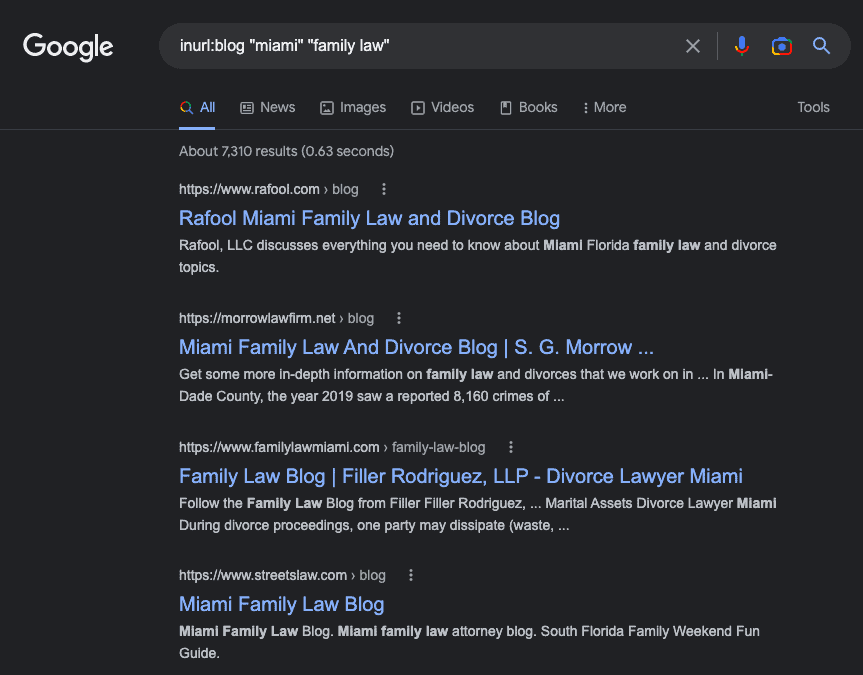
Once you have a list of local industry bloggers, it’s time to reach out to them.
Here’s a template that I used for content swap outreach.
Subject: Content swap for your legal blog, %Name%
Hi %Name%,
My name is Tiffanny Chappels, an immigration lawyer and legal blogger based in Miami.
I came across your website and really like what you recently published. I would like both of our blogs to grow website traffic and would like to know if you’d be interested for a content exchange – I write for your blog, you write for mine.
I’d love to write a post for your blog related to child custody or family law.
If it needs to be in a conversational tone, I’d be happy to do that.
Let me know if your thoughts.
All the best,
Tiffany
A few things why this pitch works:
- Industry-to-industry-based outreach emails is much more effective as they become more relevant to the recipient of the email.
- Adding where you’re located as a company adds a quick connection, with that, you can use a corporate email of your client.
- Propose added value by sharing customized content for your guest post – conversational tone. This helps you get a higher conversion rate.
3. Content Partnership
Another ethical backlink exchange strategy that works is a content partnership, originally discussed by Jason Acidre on his SEO blog.
I’ve found that this is not scalable to all industries, especially in niches where there are no active bloggers.
But the key to making this link building method work is making yourself familiar with the brand you’re reaching out to. After all, you want a partnership that can generate consistent results for both ends.
The difference with this link building technique compared to content swap is that you can offer different types/formats of content based on each party’s needs, options such as:
Conducting a back-to-back interview. See this example at SEO Hacker and Kaiserthesage.
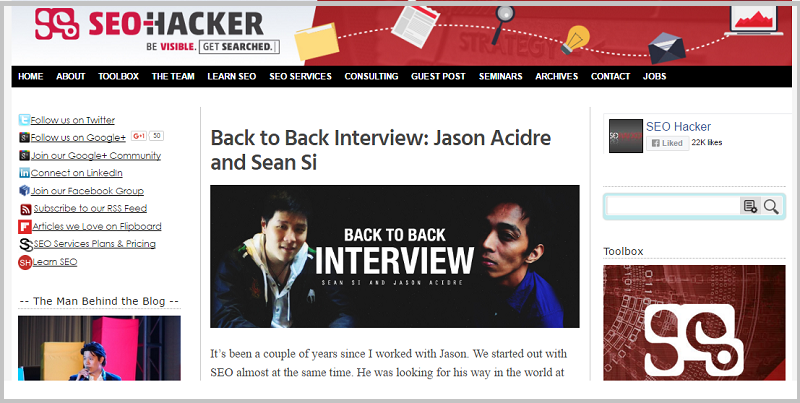
Inviting your content partner to write a guest blog on your site and writing content for them as well (see this guest post at GotchSEO and Webris).
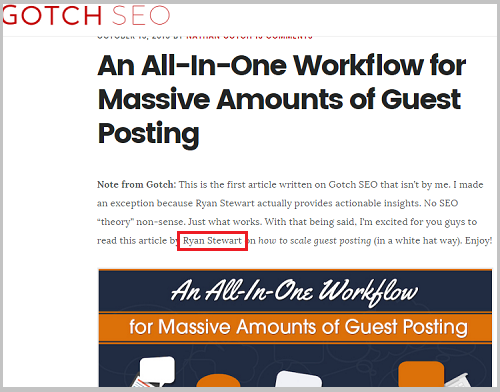
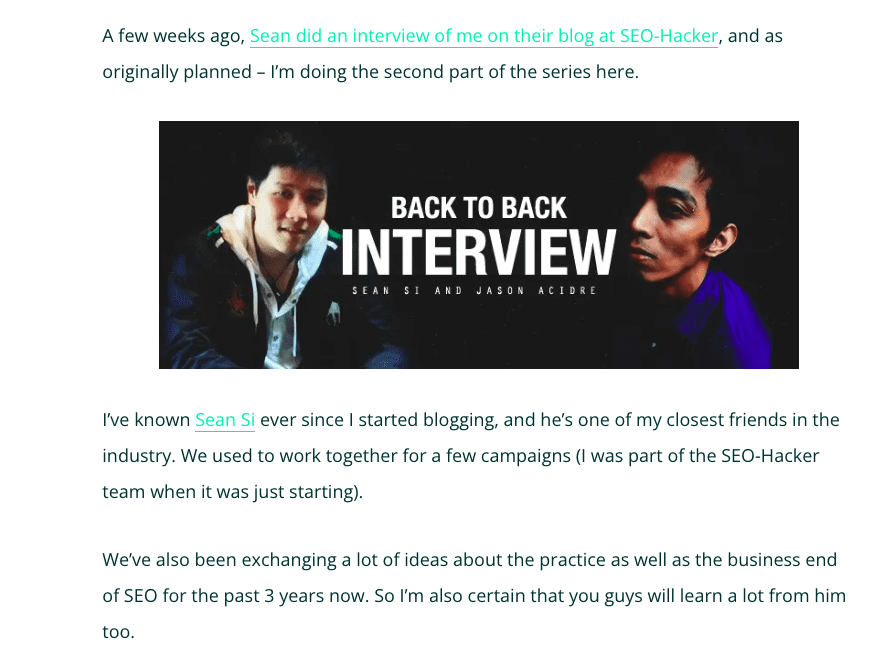
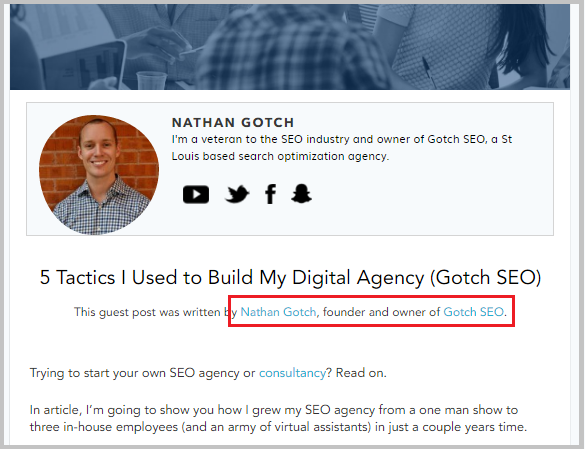
Offering an exclusive write-up or promotion/sponsored post on his site and in exchange, making him as your media partner. I wrote a promotional post for my previous startup workshop for Tycoon, in return, I added him as my media partner for my book.

For the outreach phase, here is an example pitch Jason sent to one of his content partners. You can make variations of it based on the value proposition you’d like to provide to your targeted content partners.
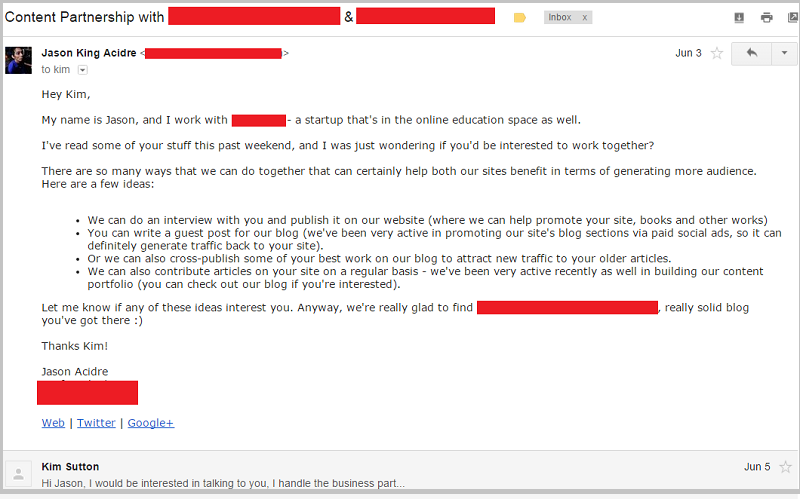
The value of this thematic link exchange strategy is far more beneficial than a single link you’ll get from the typical link exchange, because this content partnership can help generate leads for both parties (of course they shouldn’t be competing with each other), referral traffic, expanded branded exposure/influence and additional following for both social accounts.
Now It’s Your Turn…
Do you have a thematic link exchange strategy that works for you?
Or maybe you have a question about implementing any of the tactics in our above list?
Either way, leave a quick comment below.
I’ll be more than happy to reply to comments and answer questions.
Frequently Asked Questions About Link Exchange
Is link exchange still effective for SEO?
Link exchange was once a popular technique for improving search engine rankings, but it is now generally considered to be less effective than it was in the past. This is because search engines have become more sophisticated and can now more easily identify and penalize websites that engage in link exchange solely for the purpose of manipulating search engine rankings.
It’s important to note that links from other websites can still be a valuable part of a comprehensive search engine optimization (SEO) strategy, but they should be earned through high-quality content and natural outreach efforts rather than through link exchange agreements.
Search engines like Google use complex algorithms to evaluate the quality and relevance of websites and assign them a ranking in search results. While links from other websites can be one factor that is considered in these algorithms, they are just one of many factors, and they are not as important as they once were.
In general, it is more effective to focus on creating high-quality, informative content that will naturally attract links from other websites rather than trying to manipulate search engine rankings through link exchange. This will provide more value to your website’s visitors and will be more sustainable over the long term.
Is link exchange considered spam?
Link exchange is not necessarily considered spam, but it can be if it is done in a way that is considered to be manipulative or deceptive. For example, if a website engages in link exchange with other websites solely for the purpose of boosting its search engine rankings, it could be considered spam.
In general, search engines do not look favorably upon practices that are intended to manipulate search engine rankings or deceive users. This includes link exchange schemes that are designed solely for the purpose of manipulating search engine rankings, rather than for the purpose of providing value to users.
It’s important to note that participating in link exchange can be a legitimate and valuable part of a comprehensive SEO strategy, as long as it is done in a way that is transparent and provides value to users. This might include participating in link exchange with other websites in your industry or niche, or creating valuable resources that other websites will want to link to.
However, it’s important to avoid participating in link exchange schemes that are designed solely for the purpose of manipulating search engine rankings, as this can be considered spam and could result in penalties from search engines.
What are some alternatives to link exchange?
There are several alternatives to link exchange that can be more effective for improving search engine rankings and driving traffic to your website. These include:
- Creating high-quality, informative content: One of the most effective ways to attract natural links from other websites is to create content that is valuable and informative to your target audience. This might include blog posts, articles, infographics, videos, or other types of content that provide value to your visitors.
- Earning links through public relations and marketing efforts: Another way to earn links is to engage in public relations and marketing efforts that can help to promote your website and its content to a wider audience. This might include guest blogging, speaking at conferences, or participating in industry events.
- Participating in relevant online communities and forums: Building relationships with other professionals and experts in your industry or niche can be a great way to earn links. This can be done by participating in relevant online communities and forums, such as LinkedIn groups or industry-specific forums.
- Building relationships with influencers: Influencer marketing can be a powerful way to earn links and drive traffic to your website. This involves building relationships with influencers in your industry or niche and working with them to promote your website and its content to their followers.
- Using social media to promote your content: Social media platforms like Facebook, Twitter, and Instagram can be powerful tools for promoting your content and earning links. By regularly posting high-quality content and engaging with your followers, you can drive traffic to your website and earn natural links from other websites.
How can I find websites to participate in link exchange with?
There are several ways to find websites to participate in link exchange with:
- Search for websites in your industry or niche: One way to find websites to participate in link exchange with is to search for websites in your industry or niche that may be interested in link exchange. You can use search engines like Google or specialized link exchange directories to find potential partners.
- Use link analysis tools: Tools like Ahrefs or Majestic can help you identify websites that are already linking to similar websites in your industry or niche. You can use these tools to find potential link exchange partners and reach out to them to see if they would be interested in linking to your website as well.
- Join a link exchange network: Another option is to join a link exchange network, which is a group of websites that agree to link to each other in order to improve their search engine rankings. Link exchange networks can be a good way to find potential partners, but it’s important to be cautious and make sure that the websites in the network are of high quality and relevant to your own website.
- Consider other types of partnerships: In addition to link exchange, there are other types of partnerships that you can pursue in order to improve your search engine rankings and drive traffic to your website. This might include guest blogging, content syndication, or cross-promotion with other websites.
How do I measure the success of a link exchange?
- Track traffic from the linked website: One way to measure the success of a link exchange is to track the traffic that you receive from the linked website using tools like Google Analytics. By looking at the referral traffic from the linked website, you can get a sense of how effective the link exchange is in driving traffic to your website.
- Check your search engine rankings: Another way to measure the success of a link exchange is to track the search engine rankings of your website and see if there is an improvement after participating in the link exchange. You can use tools like Ahrefs or SEMrush to track your rankings and see if they have improved as a result of the link exchange.
- Check your Domain Authority (DA) and Page Authority (PA): Domain Authority (DA) and Page Authority (PA) are measures of the strength and quality of a website or web page, respectively. Higher scores indicate that a website or page is more likely to rank well in search results. You can use tools like Ahrefs or Moz to check your website’s DA and PA and see if they have improved as a result of the link exchange.
- Monitor your website’s overall performance: In addition to tracking specific metrics like traffic and search engine rankings, it’s also important to monitor your website’s overall performance and see if the link exchange is having a positive impact. This might include looking at metrics like website traffic, user engagement, and conversions.
Can I participate in link exchange with websites in different languages?
Yes, you can participate in link exchange with websites in different languages. This can be a good way to reach a wider audience and drive traffic to your website from other countries. However, you should be aware that search engines may treat links from websites in different languages differently, so it’s important to carefully consider the potential impact on your search engine rankings before participating in link exchange with websites in different languages.
It’s also important to consider the language and cultural differences when participating in link exchange with websites in other countries. For example, you should make sure that the content on your website is appropriate and relevant for the target audience, and that the link exchange is transparent and provides value to users.
Finally, it’s a good idea to use a translation tool or professional translation service to ensure that any communication with the website owner or webmaster is clear and accurate. This will help to ensure that the link exchange process goes smoothly and that both parties are able to benefit from the arrangement.
The Author
Venchito Tampon Jr
Venchito Tampon is a Filipino Motivational Speaker, Corporate Trainer, and a Leadership Speaker in the Philippines. He is the CEO and Co-Founder of SharpRocket, a link building agency. With a decade of experience, Venchito has a proven track record of leading hundreds of successful SEO (link builidng) campaigns across competitive industries like finance, B2B, legal, and SaaS. His expert advice as a link building expert has been featured in renowned publications such as Semrush, Ahrefs, Huffington Post and Forbes. He is also an international SEO spoken and has delivered talks in SEO Zraz, Asia Pacific Affiliate Summit in Singapore, and Search Marketing Summit in Sydney, Australia. Check out his other businesses, Hills & Valleys Cafe, Blend N Sips and Saas Pursuit.
How our LINK BUILDING AGENCY builds 250 links/mo consistently using Predictable Link Building Methodology™…
- Using a SIMPLE and PROVEN system
- Using a SCALABLE strategy
- No private blog networks
- No creepy outreach emails
